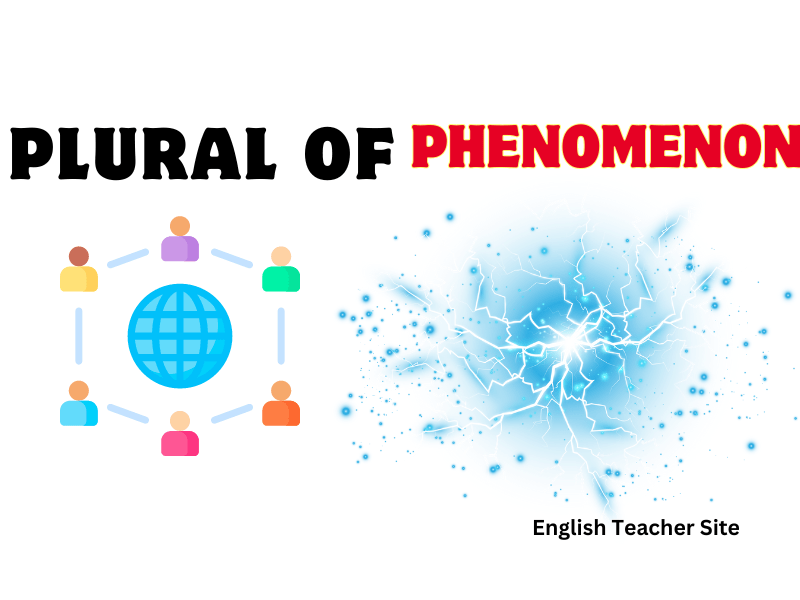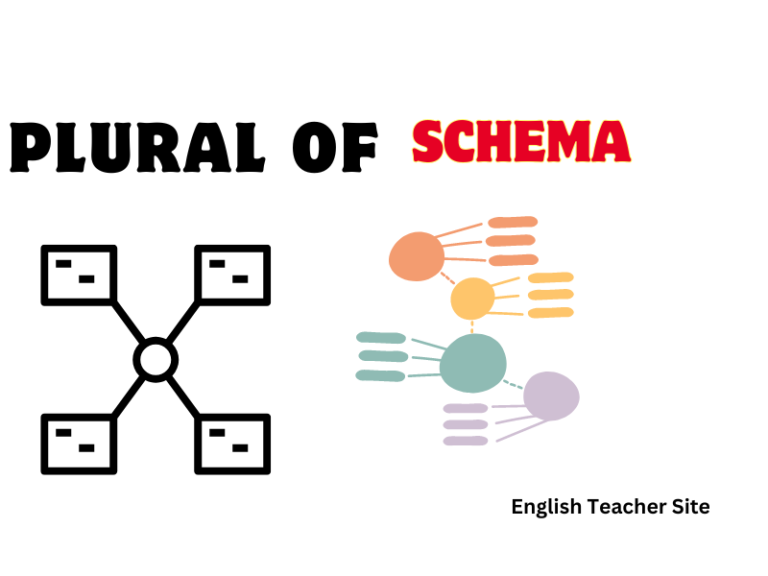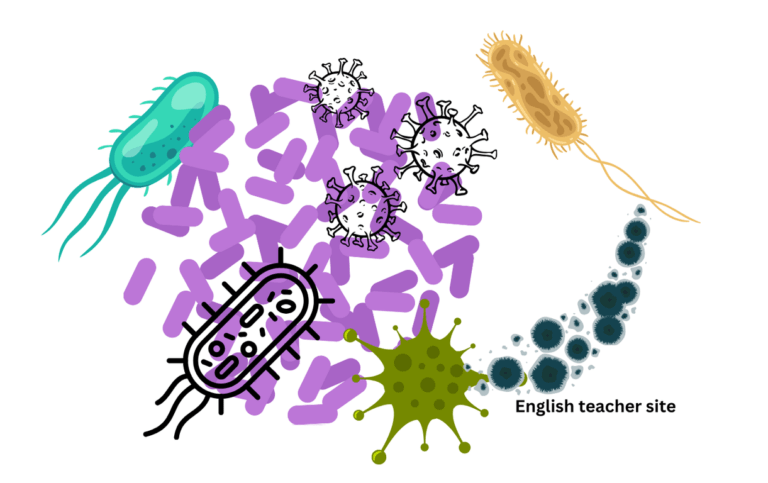What’s the Plural of Phenomenon: Understanding Linguistic Variations

- “Phenomenon” is an irregular noun with Greek origins, requiring a specific plural form.
- The correct plural of “phenomenon” is “phenomena,” diverging from standard English pluralization rules.
- Knowledge of the proper plural form is essential for clear communication in English.
The word “phenomenon” is one such noun that tends to cause confusion due to its irregular pluralization. Unlike most English nouns that simply add an “s” or “es” to form the plural, “phenomenon” follows a different rule. This noun, which denotes an observable event or fact, originates from Greek, and its pluralization reflects its etymological roots. To use this noun correctly in various contexts, it’s imperative to learn its plural form and the guidelines that govern its transformation.
What’s the Plural of “Phenomenon”?
A phenomenon is an observable event or an exceptional occurrence, typically noteworthy in the fields of science and philosophy.
The correct plural of phenomenon is phenomena. This follows the word’s Greek origin, where nouns ending in -on often have plural forms ending in -a. English, with its diverse etymological roots, preserves certain pluralization rules from the original languages of borrowed words.
| Singular | Plural |
|---|---|
| Phenomenon | Phenomena |
Common Usage:
- Scientists identified multiple new weather phenomena last year.
- This museum features exhibits on natural phenomena.
| Acceptable in formal writing | Acceptable in colloquial speech |
|---|---|
| Phenomena | Phenomena |
| Not Phenomenons | Phenomenons (rarely and informally) |
Here’s an example of this usage in a sentence:
- The research paper examined the phenomena associated with climate change.
Is “Phenomenon” Singular or Plural?
| Singular | Plural |
|---|---|
| Phenomenon | Phenomena |
Here are key points to remember:
- “Phenomenon” is singular.
- “Phenomena” is the traditional plural form.
- The use of “phenomenons” as a plural is occasionally found but is nonstandard and often considered incorrect.
In literature and scientific writing, using “phenomena” garners greater acceptance and aligns with traditional grammatical rules. Here’s an example in a sentence:
- When observing natural events, researchers often encounter unpredictable phenomena.
- Use “phenomenon” when referring to a singular event.
- Switch to “phenomena” when discussing multiple events.
- Avoid “phenomenons” to maintain grammatical accuracy and formal writing standards.
What’s the Plural of “Phenomenon”?
Singular to Plural:
Phenomenon originates from Greek, and like many words borrowed from other languages, it retains its original pluralization rules.
| Singular | Plural |
|---|---|
| Phenomenon | Phenomena |
Usage in Sentences:
In application, phenomenon refers to a singular observable event or fact, whereas phenomena represents the plural. It is essential to use the correct form to convey accurate information.
- Examples of Singular Use:
- The Aurora Borealis is a fascinating phenomenon.
- Examples of Plural Use:
- Black holes are just one of the many cosmic phenomena that intrigue scientists.
Common Misconception:
A common mistake is assuming that the word follows standard English pluralization rules, adding an ‘s’ to create phenomenons.
| Correct Plural Form | Incorrect Plural Form |
|---|---|
| Phenomena | Phenomenons |
What’s the Dictionary Definition of a Phenomenon?
In the realm of English vocabulary, the word phenomenon holds a specific place, describing an occurrence, fact, or event that is observable. a phenomenon is something that is known through the senses as opposed to thought or intuition. This comprehensive term can pertain to various contexts, from an extraordinary event to a common occurrence requiring scientific investigation.
The term’s usage extends across disciplines, illustrating its adaptability:
- Science: an event of scientific interest
- Philosophy: the object of a person’s perception, as distinguished from the noumenon
Dictionary Definitions:
| Aspect | Description |
|---|---|
| a. | An observable event or occurrence |
| b. | Something distinguishable from a noumenon (Kantian philosophy) |
| c. | A fact or event of scientific interest |
Examples in Context:
- Cultural Phenomenon: Trends or events that gain widespread popularity.
- Natural Phenomenon: Events that occur in the physical world, such as weather patterns.
Irregular Nouns That End in –on/-um and -a
Plurals of Nouns Ending in –on/-um
Nouns ending with –on or –um often change to –a in their plural forms. The shift from –on/-um to –a is derived from their Latin origins where this was a standard pluralization pattern. Below is a table demonstrating some of these changes:
| Singular | Plural |
|---|---|
| phenomenon | phenomena |
| criterion | criteria |
| automaton | automata |
| datum | data |
Plurals of Nouns Ending in -a
Conversely, nouns that end in -a sometimes form their plural by adding an “e” to the end. This transformation is less consistent and can vary based on the word’s etymology. Here are a few examples:
| Singular | Plural |
|---|---|
| alumna | alumnae |
| formula | formulae |
| antenna | antennae |
Exceptions do occur, and some words retain the -a ending or take on a more Anglicized pluralization with “s.”
- Exception Examples:
- Area – areas
- Gorilla – gorillas
Examples of “Phenomenon” Used in Context
Single Event (Singular form: “phenomenon”)
- Observation: A teacher may say, “The sudden change in the student’s performance is an interesting phenomenon.”
- Natural Science: “The Aurora Borealis is a natural phenomenon that creates spectacular light displays in the sky.”
Multiple Events (Plural form: “phenomena”)
- Observation: A historian might note, “The phenomena of urbanization and industrialization dramatically reshaped 19th-century society.”
- Natural Science: “Migratory patterns and nesting behaviors are fascinating phenomena among bird species.”
Contextual Differences
| Use Case | Singular “Phenomenon” | Plural “Phenomena” |
|---|---|---|
| Scientific Research | The gravitational pull of the moon is a phenomenon. | The varying phenomena of lunar phases have been well documented. |
| Philosophical Discussion | Kant discussed the noumenon as distinct from the phenomenon. | The phenomena in his theory represent things as we perceive them. |
To effectively use the term in writing or speech, understanding these distinctions is essential for clarity and correctness.
- One Occurrence: The word “phenomenon” stands for a single, observable event, such as a solar eclipse.
- Multiple Occurrences: “Phenomena” is used when referring to more than one event, such as various economic indicators showing a trend.
- Special Cases: Technical fields like philosophy and science may have specific uses for these terms that reflect their particular disciplines.
Examples of “Phenomena” Used in Context
Here are some examples displaying “phenomena” in a variety of sentences:
Scientific Context:
| Singular Usage | Plural Usage |
|---|---|
| The aurora borealis is a fascinating phenomenon visible in the polar regions. | The Northern and Southern Lights are similar phenomena caused by solar winds interacting with the earth’s magnetic field. |
Social Sciences:
- Singular: In sociology, one might study the phenomenon of social media’s impact on communication.
- Plural: Sociologists are increasingly interested in cyberbullying and misinformation, which are newly emerging phenomena in the digital age.
Everyday Usage:
- Singular: The sudden popularity of the new game was an unexpected phenomenon.
- Plural: The series of colorful sunsets we’ve witnessed this week are natural phenomena worth observing.
Synonyms for “Phenomenon/Phenomena”
Here are two tables that list synonyms for “phenomenon” and “phenomena” to enhance your vocabulary:
Singular Synonyms for “Phenomenon”:
| Synonym | Usage Context |
|---|---|
| Event | General Occurrence |
| Occurrence | Frequently observed |
| Marvel | Something that causes wonder |
| Wonder | Remarkable or spectacular |
Plural Synonyms for “Phenomena”:
| Synonym | Usage Context |
|---|---|
| Events | Multiple occurrences |
| Occurrences | Various instances |
| Marvels | A collection of wonders |
| Wonders | An array of extraordinary things |
It is essential to choose the appropriate synonym based on both the context and the number of events being described.
Singular:
- Event (a single occurrence)
- Marvel (a singular wonder)
- Wonder (something causing amazement)
Plural:
- Events (numerous happenings)
- Marvels (several amazing occurrences)
- Wonders (assorted extraordinary items)
In scientific circles, substitutes for “phenomenon” often maintain an air of objectivity, while in casual speech, choices such as “wonder” add a flair of astonishment. Whether one uses “phenomenon” or one of its synonyms, the term should always reflect the singularity or plurality of the subject matter accurately.
Origin of the Word “Phenomenon”
The term phenomenon has a rich and intricate history. It traces its roots back to the late 16th century, originating from the Late Latin word phænomenon, which came from the Greek phainomenon meaning “that which appears or is seen.”
This Greek term is the noun use of the neuter present participle of phainesthai, meaning “to appear,” itself a passive form of phainein, which can be translated to “bring to light, cause to appear, show.” It is linked to the Greek goddess of light, Phaenna, enhancing the word’s association with visibility and appearance.
| Greek | Translation |
|---|---|
| phainomenon | that which appears or is seen |
| phainesthai | to appear |
| phainein | bring to light, cause to appear |
Phenomenon is not just a description of any observed fact; historically, it indicated an occurrence with regularity, something that could be perceived consistently under certain kinds of conditions.
| Case | Singular | Plural |
|---|---|---|
| Nominative | phenomenon | phenomena |
| Genitive | phenomeni | phenomenōn |
Sources
- Definition of phenomenon/phenomena.
- Vocabulary.com, phenomena.
- Synonyms for phenomenon.
- Origin of the word phenomenon.
- Origin of phenomenon.
My name is Khamis Maiouf. I am the creator of the English Teacher Site, dedicated to providing valuable resources and insights for students around the world. With a passion for education and a commitment to helping students enhance their skills, I aim to make English teaching more effective and enjoyable for both educators and students.






